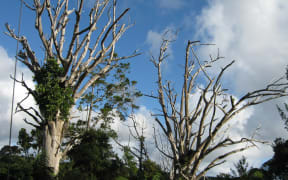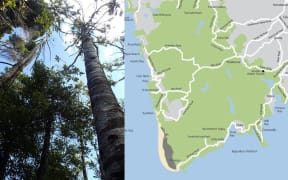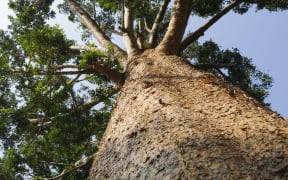Scientists researching kauri dieback disease are looking for Northland landowners to join a growing community action to save their trees.
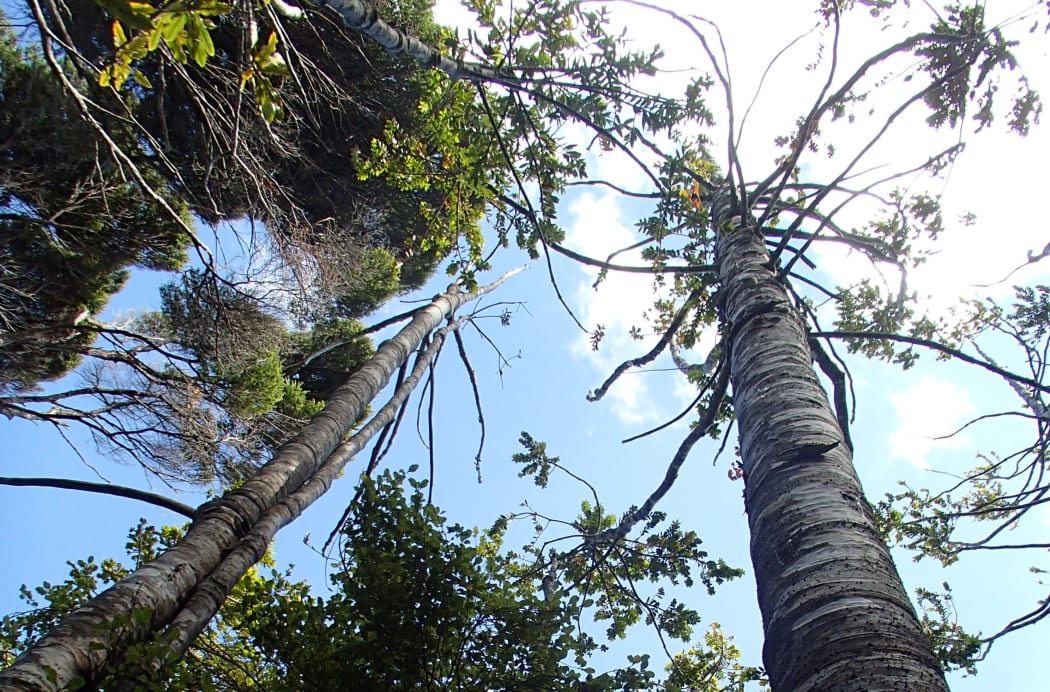
Kauri trees dying from kauri dieback disease. Photo: RNZ / Alison Ballance
Hundreds of kauri are dead or dying from Waikato to the Far North because of the spread of the fungal disease Phytophthora agathadicida.
At Whangarei's Toll Stadium this week about 40 people turned up for the Northland launch of Kauri Rescue.
Ian Horner, the scientist leading research into it the disease, said people were spreading it around the country.
"It's people working in the forest, going for hikes in the forest, going on their jog in the forest, not cleaning their shoes and then going to another forest."
But Dr Horner said his team were getting good results over six years of trials by injecting diseased trees with phosphite - a chemical used by avocado and other growers to defeat root fungus.
It has not been used yet in any crown-owned forests, but for the past six months a small group of private landowners in west Auckland have been dosing their trees under Dr Horner's supervision.
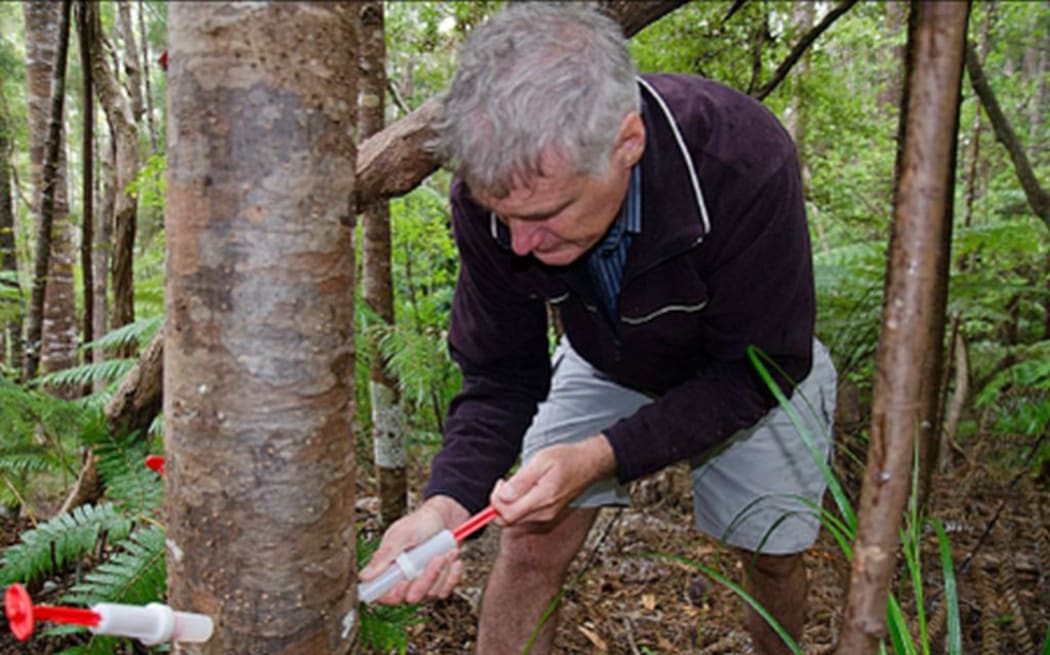
Dr Ian Horner injects a young kauri tree with phosphite. Photo: Plant & Food Research
Kauri Rescue was now keen to enlist landowners and volunteers in Northland.
It was looking for people with diseased kauri to start using phosphite - and anyone else who could offer practical support or help with publicity.
Parua Bay man Mike Peterson signed up on the spot.
He was shocked by slides of the kauri deaths in Auckland. "It was very very scary, it's devastating, it's really really sad. They're all tree trunks but no life."
Waitangi Wood, from Whangaroa, said some Māori landowners in her area were initially opposed to the use of phosphite, but that had changed when they saw trees saved by the chemical.
"This was a last-ditch attempt to make sure that your kauri didn't die.
"If we lose kauri, Māori lose culture; if we lose culture we are no longer Māori."
Plant pathologist Nick Waipara said he recommended anyone with infected kauri to use phosphite.
Northland people who want to join Kauri Rescue can find the team on Facebook or its website.
